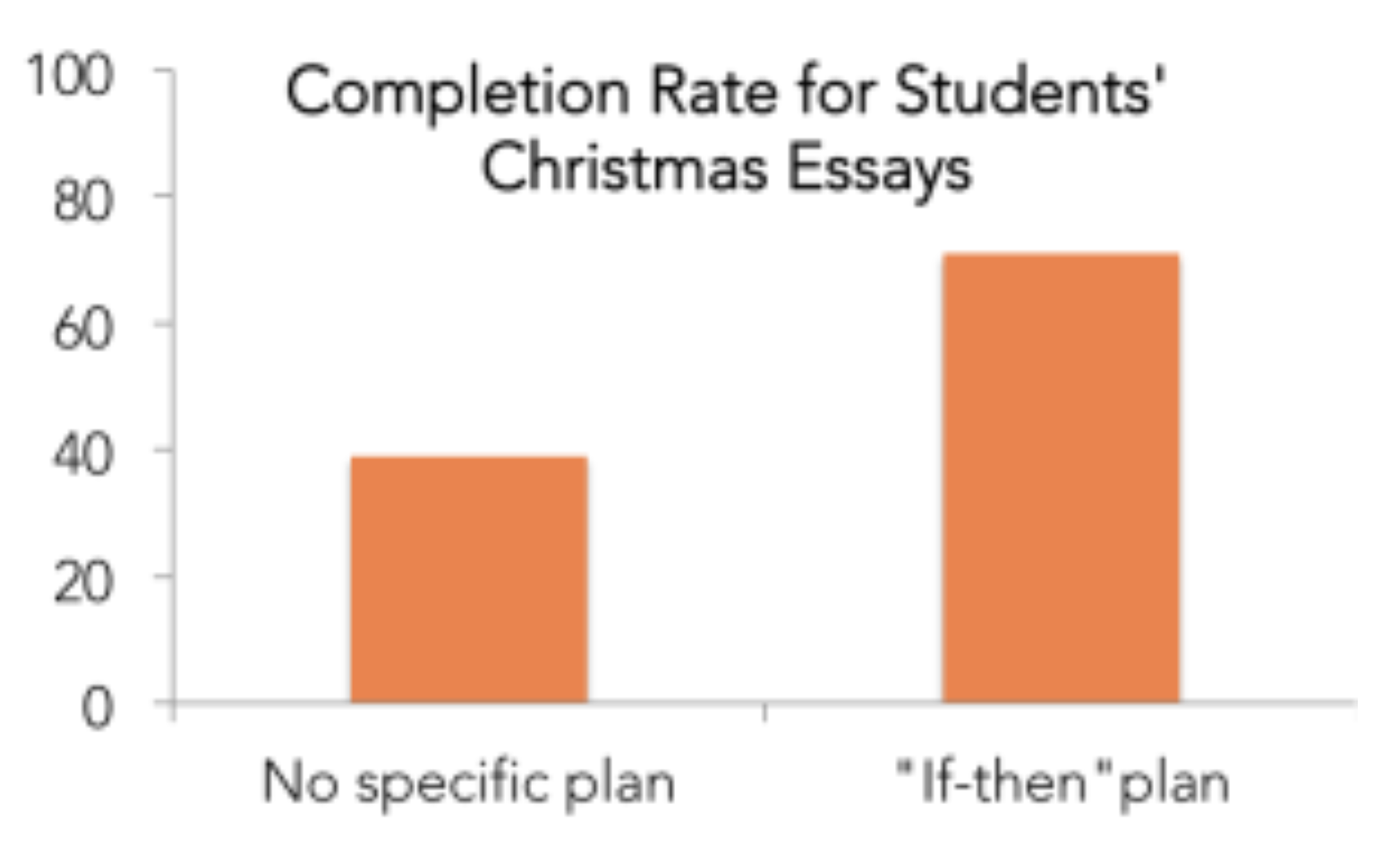Can you believe the summer is more than halfway over? It’s amazing how quickly the time flies!
I’ve talked with a few parents recently who are feeling frustrated with their student’s lack of progress with summer projects like doing their summer reading or cleaning their room.
Despite saying numerous times that they’ll get started with this “soon”, they still haven’t made much — if any — progress on these goals.
As we all know, there can be a big difference between saying that something will happen and actually getting it done!
This is especially true in the summer, when most students are far more interested in relaxing and hanging out with friends than they are in completing that math packet that needs to be done before the start of the fall semester.
If this is happening with your student, here’s something that might help!
“If-then” planning…
If-then planning is a simple and powerful approach to turning your student’s goals and intentions into concrete results.
How it works
If your student has a general goal they would like to reach—for example, finishing their summer reading—encourage them to take it one step further and create a specific “if-then” plan for what, when, and where they will take action.
For example…
“If we’re in the car driving somewhere, I’ll take out my book and do some of my summer reading.” (Of course, this would only work if your student’s not the one driving!)
Or…
“If it’s a weekday after dinner, I’ll go down to the basement and spend half an hour on my summer reading.”
The research
In a review of 94 tests from 63 different studies, “if-then” plans were demonstrated to have a significant effect on participants’ ability to follow through and take the necessary actions to achieve their goals. (Gollwitzer & Sheeran 2006)
Creating an “if-then” plan—or what researchers call an “implementation intention”—has been shown to increase the rate of follow-through by 2-3 times over the rate for people who simply stated that they would complete something, but didn’t decide when and where they would do it.
For example, when university students were asked to write an essay over Christmas break, 71% of the students who created “if-then” plans completed and submitted their essay… whereas only 39% of students who didn’t create “if-then” plans actually followed through with their intention to complete and submit their essay.
That’s nearly double the rate of completion, just for taking a few moments to set an intention for when and where they would take the actions necessary to complete their goal!

Putting it into practice
We use this type of planning all the time with my coaching students. Before wrapping up our sessions, we routinely take a few minutes to discuss what they will do to take action on the ideas we’ve discussed that day, and create a plan for when and where they will do it.
We also encourage them to think through what might keep them from following through with their plans, and decide how they will respond to those obstacles. To take our example from earlier, if a student was planning to do summer reading after dinner, but realized that there would be a lot of evenings when they were out with their friends for dinner rather than being at home, they might create an alternative plan for those days: “if I’m going out with my friends for dinner, I’ll do my reading for half an hour after breakfast.”
Having this type of specific, concrete plan for what to do really helps increase the chances that they will follow through with it.
This is something that you can do with your student at home as well, by encouraging them to take the statement “I’ll do it later…” one step further, to specify exactly what, when, and where they will do this action.
If you ask your student to come up with this plan themselves, rather than creating the plan for them, they will generally be more motivated to complete it.
Another way to make these plans more effective is to make them as specific as possible. For example: “If it’s a weekday, I will spend some time cleaning my room” is much less effective than “If it’s a weekday evening after I’ve brushed my teeth, I will take dirty dishes downstairs and put my clothes in the hamper before getting in bed.”
Coming up with a specific if-then plan, especially if it is connected to an existing habit like eating dinner or showering, can often be enough to encourage students to take action, even without additional reminders. But, just in case, it can also be helpful to set a phone alarm or write a reminder in a planner or on a post-it note, to remind them to follow through with their “if-then” plan.
Your Turn!
Does your student have any projects they have been promising to do…but so far making little, if any, progress with? How could you use “if-then” planning to help them follow through and take action?
If your student could use some additional help creating and following through with action plans, click here to talk with us about how working with a coach can improve your student’s ability to set goals, get motivated, follow through with plans, and achieve their goals!
References
Gollwitzer & Sheeran (2006). Implementation Intentions and Goal Achievement: A Meta-analysis of Effects and Processes. Advances in Experimental Social Psychology. 38, 69-119.
Gollwitzer & Brandstätter (1997). Implementation Intentions and Effective Goal Pursuit. Journal of Personality and Social Psychology, 73: 1, 186-199.

Join 11,000+ parents helping their students earn better grades with less stress!

About The Author
Dr. Maggie Wray is a certified ADHD Coach & Academic Life Coach with a Ph.D. in Neurobiology and Behavior from Cornell and a Bachelor’s degree in Astrophysics from Princeton. She founded Creating Positive Futures in 2012 to help high school and college students learn how to earn better grades with less stress. Her team of dedicated coaches is on a mission to empower students to develop the mindset, organization, time management, and study skills they need to achieve their goals.
Related Posts
Other Posts You May Enjoy
Preparing for exams: 4 steps to success
As we get closer to exams, students are getting increasingly stressed out. And when teens are stressed about their exams, it can affect everyone else around them, too! Following the four-step planning process below can help students prepare more effectively for their...
How to finish the semester strong
Students' grades are the most important factor colleges consider when making admissions decisions.So, with the end of the semester approaching, how can you make sure your student is finishing the semester with the best grades they can? At this point in the semester,...
Why it’s hard for students to “just turn in” missing assignments, and how to get them unstuck
With the end of the semester on the horizon, many students may feel overwhelmed by low grades or feeling behind in some of their classes. As a parent, it can be stressful to see that your student has overdue work, or get notifications from their teacher that they’re...




